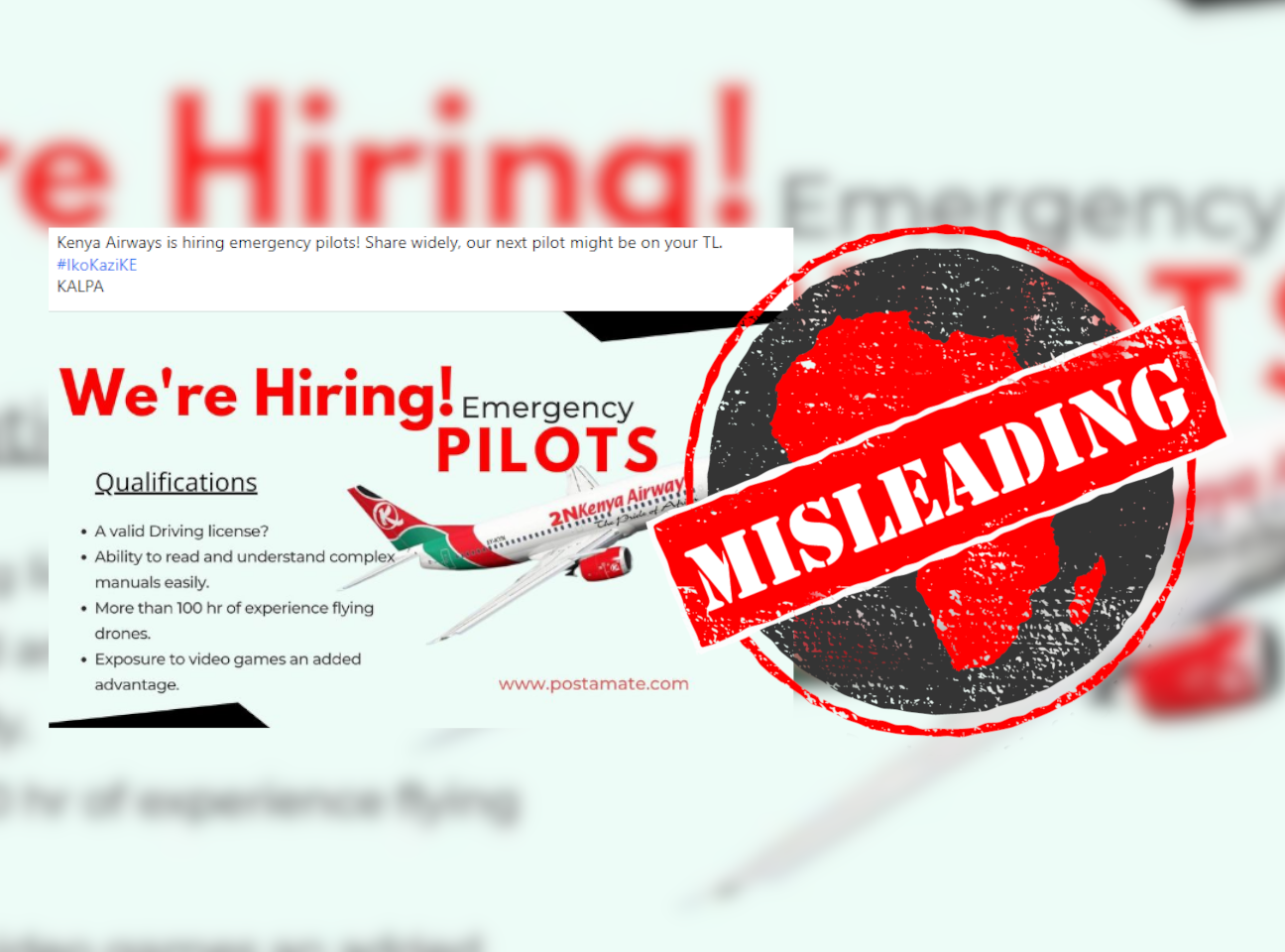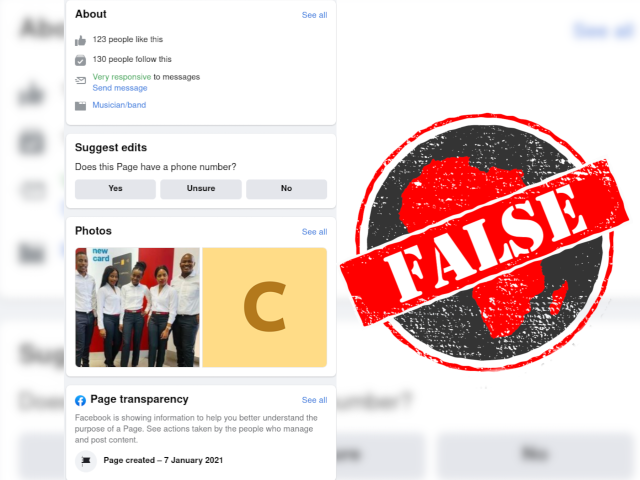IN SHORT: The graphic pokes fun at the recent pilots’ strike at Kenya’s troubled national carrier. But some people might think it advertises real jobs.
A graphic that appears to be a recruitment poster, posted on Facebook, claims that Kenya’s national airline Kenya Airways is hiring emergency pilots.
The qualifications required are “a valid Driving license, ability to read and understand complex manuals easily [and] more than 100 hr of experience flying drones”.
The poster adds that “exposure to video games [is] an added advantage”.
Kenya Airways has been struggling financially for years. The airline was in the news for a crippling strike by its pilots in November 2022.
The pilots’ union said they were striking for better working conditions. The poster would supposedly be aimed at plugging the staffing gap caused by the strike.
On 8 November a court ordered the pilots back to work, ending the four-day strike.
We reached out to Kenya Airways through its official Twitter page to ask if the hiring poster was legitimate.
The airline shared a link to its LinkedIn page which has job openings. This does not show the job advertisement in the poster.

Red flags
The hiring poster also has some red flags that suggest it is fake. These include poor spelling and grammar, the failure to mention the airline’s official website and the editing of the Kenya Airways logo to include ‘2N’.
The popular passenger service 2NK operates in central Kenya. The poster’s suggestion is that the management of the airline is no better than local transport options.
The poster seems intended as satire, but could mislead some people.
Republish our content for free
For publishers: what to do if your post is rated false
A fact-checker has rated your Facebook or Instagram post as “false”, “altered”, “partly false” or “missing context”. This could have serious consequences. What do you do?
Click on our guide for the steps you should follow.
Publishers guideAfrica Check teams up with Facebook
Africa Check is a partner in Meta's third-party fact-checking programme to help stop the spread of false information on social media.
The content we rate as “false” will be downgraded on Facebook and Instagram. This means fewer people will see it.
You can also help identify false information on Facebook. This guide explains how.



Add new comment